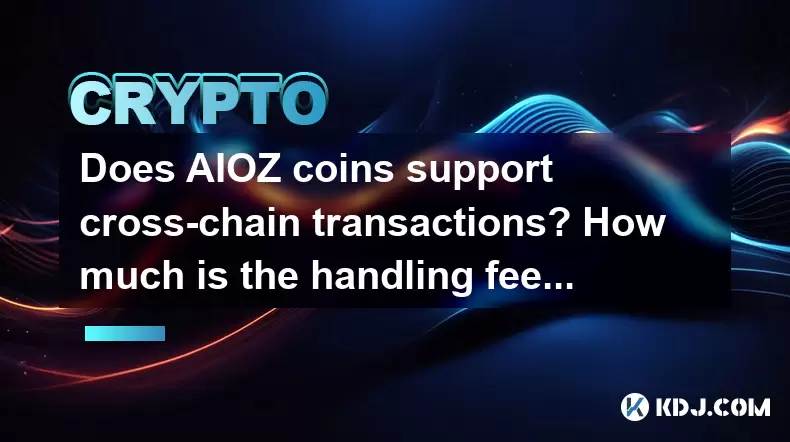-
 Bitcoin
Bitcoin $120300
1.41% -
 Ethereum
Ethereum $4296
2.75% -
 XRP
XRP $3.220
1.46% -
 Tether USDt
Tether USDt $0.9997
-0.04% -
 BNB
BNB $801.6
0.14% -
 Solana
Solana $179.9
0.22% -
 USDC
USDC $0.9998
-0.01% -
 Dogecoin
Dogecoin $0.2302
-0.24% -
 TRON
TRON $0.3405
-0.39% -
 Cardano
Cardano $0.7965
0.53% -
 Hyperliquid
Hyperliquid $44.80
2.57% -
 Chainlink
Chainlink $21.95
2.94% -
 Stellar
Stellar $0.4438
1.68% -
 Sui
Sui $3.767
-1.42% -
 Bitcoin Cash
Bitcoin Cash $584.4
3.24% -
 Hedera
Hedera $0.2554
-0.59% -
 Ethena USDe
Ethena USDe $1.001
-0.02% -
 Avalanche
Avalanche $23.57
0.00% -
 Litecoin
Litecoin $126.6
4.64% -
 Toncoin
Toncoin $3.339
0.94% -
 UNUS SED LEO
UNUS SED LEO $9.001
-0.49% -
 Shiba Inu
Shiba Inu $0.00001320
-0.92% -
 Uniswap
Uniswap $10.84
3.36% -
 Polkadot
Polkadot $3.945
-1.39% -
 Cronos
Cronos $0.1663
4.77% -
 Ethena
Ethena $0.8136
8.48% -
 Dai
Dai $0.0000
0.00% -
 Bitget Token
Bitget Token $4.391
-0.51% -
 Monero
Monero $268.0
0.80% -
 Pepe
Pepe $0.00001169
-1.57%
Does AIOZ coins support cross-chain transactions? How much is the handling fee?
AIOZ Network supports cross-chain transactions with handling fees ranging from 0.1% to 0.5% of the transaction amount, depending on network conditions and complexity.
May 21, 2025 at 02:14 pm

Does AIOZ coins support cross-chain transactions? How much is the handling fee?
AIOZ Network is a decentralized platform that leverages blockchain technology to enable various functionalities, including content delivery, storage, and streaming. One of the critical aspects that users often inquire about is the support for cross-chain transactions and the associated handling fees. In this article, we will delve into these topics to provide a comprehensive understanding of AIOZ coins and their capabilities.
What is AIOZ Network and AIOZ Coin?
AIOZ Network is a blockchain-based ecosystem designed to enhance the efficiency and security of content delivery and storage. The native cryptocurrency of this network is AIOZ coin, which plays a crucial role in facilitating transactions and incentivizing participants within the ecosystem. AIOZ coin is built on the Ethereum blockchain, utilizing the ERC-20 standard, which allows for seamless integration with various decentralized applications (dApps) and wallets.
Support for Cross-Chain Transactions
Cross-chain transactions refer to the ability to transfer assets between different blockchain networks. This functionality is essential for enhancing the interoperability and utility of cryptocurrencies. AIOZ Network supports cross-chain transactions, enabling users to move AIOZ coins between different blockchains. This feature is particularly beneficial for users who wish to leverage the strengths of multiple blockchain networks and optimize their trading strategies.
To facilitate cross-chain transactions, AIOZ Network employs various technologies and protocols. One of the primary methods used is atomic swaps, which allow for the direct exchange of cryptocurrencies between different blockchains without the need for intermediaries. Additionally, AIOZ Network integrates with cross-chain bridges, such as the popular Wrapped Bitcoin (WBTC), to enable the transfer of assets between Ethereum and other blockchains.
How to Perform a Cross-Chain Transaction with AIOZ Coin
Performing a cross-chain transaction with AIOZ coin involves several steps, which can vary depending on the specific blockchains and protocols used. Here is a general guide on how to execute a cross-chain transaction:
Choose a Compatible Wallet: Ensure you have a wallet that supports both the source and destination blockchains. Popular options include MetaMask for Ethereum and wallets compatible with other blockchains like Binance Smart Chain (BSC) or Polygon.
Connect to the Source Blockchain: Open your wallet and connect it to the blockchain from which you want to transfer AIOZ coins. For example, if you are transferring from Ethereum, connect to the Ethereum network.
Initiate the Transaction: Navigate to the section of your wallet that allows for cross-chain transactions. This might be labeled as "Cross-Chain" or "Bridge." Enter the amount of AIOZ coins you wish to transfer and specify the destination blockchain.
Confirm the Transaction: Review the transaction details, including the handling fee, and confirm the transaction. Your wallet will generate a transaction hash, which you can use to track the status of your transfer.
Wait for Confirmation: Cross-chain transactions may take some time to complete, depending on the congestion of the networks involved. Wait for the transaction to be confirmed on both the source and destination blockchains.
Verify the Transfer: Once the transaction is complete, verify that the AIOZ coins have been successfully transferred to your wallet on the destination blockchain.
Handling Fees for Cross-Chain Transactions
The handling fee for cross-chain transactions involving AIOZ coins can vary based on several factors, including the specific blockchains involved and the current network conditions. Generally, the handling fee for AIOZ coin cross-chain transactions ranges from 0.1% to 0.5% of the transaction amount. This fee is used to cover the costs associated with executing the transaction, such as gas fees on the Ethereum network and any additional fees charged by the cross-chain bridge or protocol used.
It is important to note that the handling fee is subject to change and may be influenced by factors such as network congestion and the complexity of the transaction. Users should always check the current fee structure before initiating a cross-chain transaction to ensure they are aware of the costs involved.
Factors Affecting Cross-Chain Transaction Fees
Several factors can influence the handling fee for cross-chain transactions involving AIOZ coins. Understanding these factors can help users make informed decisions and potentially minimize their transaction costs.
Network Congestion: High levels of network congestion on either the source or destination blockchain can lead to increased handling fees. During peak times, users may need to pay higher fees to prioritize their transactions and ensure timely processing.
Transaction Complexity: The complexity of the cross-chain transaction, including the number of steps involved and the protocols used, can affect the handling fee. More complex transactions may require additional processing power and resources, leading to higher fees.
Bridge or Protocol Fees: Some cross-chain bridges and protocols charge additional fees for their services. These fees can vary depending on the specific bridge or protocol used and may be included in the overall handling fee for the transaction.
Gas Fees: For transactions involving the Ethereum blockchain, gas fees play a significant role in determining the overall handling fee. Gas fees are used to compensate miners for processing transactions and can fluctuate based on network demand.
Frequently Asked Questions
Q1: Can I perform a cross-chain transaction with AIOZ coin using a mobile wallet?
Yes, you can perform a cross-chain transaction with AIOZ coin using a mobile wallet, provided that the wallet supports both the source and destination blockchains and offers cross-chain functionality. Popular mobile wallets like Trust Wallet and MetaMask Mobile are compatible with AIOZ coin and can facilitate cross-chain transactions.
Q2: Are there any risks associated with cross-chain transactions involving AIOZ coin?
Like any cryptocurrency transaction, cross-chain transactions involving AIOZ coin come with certain risks. These include smart contract vulnerabilities, network congestion, and potential delays in transaction processing. Users should always conduct thorough research and use reputable wallets and protocols to minimize these risks.
Q3: How long does a cross-chain transaction with AIOZ coin typically take?
The duration of a cross-chain transaction with AIOZ coin can vary based on several factors, including network congestion and the specific blockchains involved. On average, cross-chain transactions may take anywhere from a few minutes to several hours to complete. Users should monitor the transaction status and be prepared for potential delays.
Q4: Can I reverse a cross-chain transaction with AIOZ coin if it fails?
Cross-chain transactions, once initiated, are generally irreversible. If a transaction fails, users may need to initiate a new transaction to recover their funds. It is crucial to double-check all transaction details before confirming to avoid errors and potential losses.
Disclaimer:info@kdj.com
The information provided is not trading advice. kdj.com does not assume any responsibility for any investments made based on the information provided in this article. Cryptocurrencies are highly volatile and it is highly recommended that you invest with caution after thorough research!
If you believe that the content used on this website infringes your copyright, please contact us immediately (info@kdj.com) and we will delete it promptly.
- DYDX Price Stays Afloat: Navigating Neutral Momentum with Technical Indicators
- 2025-08-11 20:50:12
- Superman Takes Flight: A Deep Dive into the Comic Program and Coin Medals
- 2025-08-11 20:30:12
- JasmyCoin's Bullish Momentum: Riding the Daily Gain Wave
- 2025-08-11 21:10:12
- Shiba Inu's Comeback Trail and the Meme Coin Mania: Can $SHIB Deliver a 12,000x Return?
- 2025-08-11 18:30:11
- Proof of Trust, Transparency, and User Safety: Keeping Crypto Real
- 2025-08-11 18:50:12
- Pudgy Penguins, Bitcoin Penguins, and the $22M Meme Coin Mania: A New York Perspective
- 2025-08-11 17:10:11
Related knowledge

How to purchase Aragon (ANT)?
Aug 09,2025 at 11:56pm
Understanding Aragon (ANT) and Its PurposeAragon (ANT) is a decentralized governance token that powers the Aragon Network, a platform built on the Eth...

Where to trade Band Protocol (BAND)?
Aug 10,2025 at 11:36pm
Understanding the Role of Private Keys in Cryptocurrency WalletsIn the world of cryptocurrency, a private key is one of the most critical components o...

What is the most secure way to buy Ocean Protocol (OCEAN)?
Aug 10,2025 at 01:01pm
Understanding Ocean Protocol (OCEAN) and Its EcosystemOcean Protocol (OCEAN) is a decentralized data exchange platform built on blockchain technology,...

Where can I buy UMA (UMA)?
Aug 07,2025 at 06:42pm
Understanding UMA and Its Role in Decentralized FinanceUMA (Universal Market Access) is an Ethereum-based decentralized finance (DeFi) protocol design...

How to buy Storj (STORJ) tokens?
Aug 09,2025 at 07:28am
Understanding Storj (STORJ) and Its Role in Decentralized StorageStorj is a decentralized cloud storage platform that leverages blockchain technology ...

Where to find the best price for Audius (AUDIO)?
Aug 11,2025 at 04:01pm
Understanding the Basics of Ethereum StakingEthereum staking refers to the process of locking up ETH tokens to support the security and operations of ...

How to purchase Aragon (ANT)?
Aug 09,2025 at 11:56pm
Understanding Aragon (ANT) and Its PurposeAragon (ANT) is a decentralized governance token that powers the Aragon Network, a platform built on the Eth...

Where to trade Band Protocol (BAND)?
Aug 10,2025 at 11:36pm
Understanding the Role of Private Keys in Cryptocurrency WalletsIn the world of cryptocurrency, a private key is one of the most critical components o...

What is the most secure way to buy Ocean Protocol (OCEAN)?
Aug 10,2025 at 01:01pm
Understanding Ocean Protocol (OCEAN) and Its EcosystemOcean Protocol (OCEAN) is a decentralized data exchange platform built on blockchain technology,...

Where can I buy UMA (UMA)?
Aug 07,2025 at 06:42pm
Understanding UMA and Its Role in Decentralized FinanceUMA (Universal Market Access) is an Ethereum-based decentralized finance (DeFi) protocol design...

How to buy Storj (STORJ) tokens?
Aug 09,2025 at 07:28am
Understanding Storj (STORJ) and Its Role in Decentralized StorageStorj is a decentralized cloud storage platform that leverages blockchain technology ...

Where to find the best price for Audius (AUDIO)?
Aug 11,2025 at 04:01pm
Understanding the Basics of Ethereum StakingEthereum staking refers to the process of locking up ETH tokens to support the security and operations of ...
See all articles

























































































